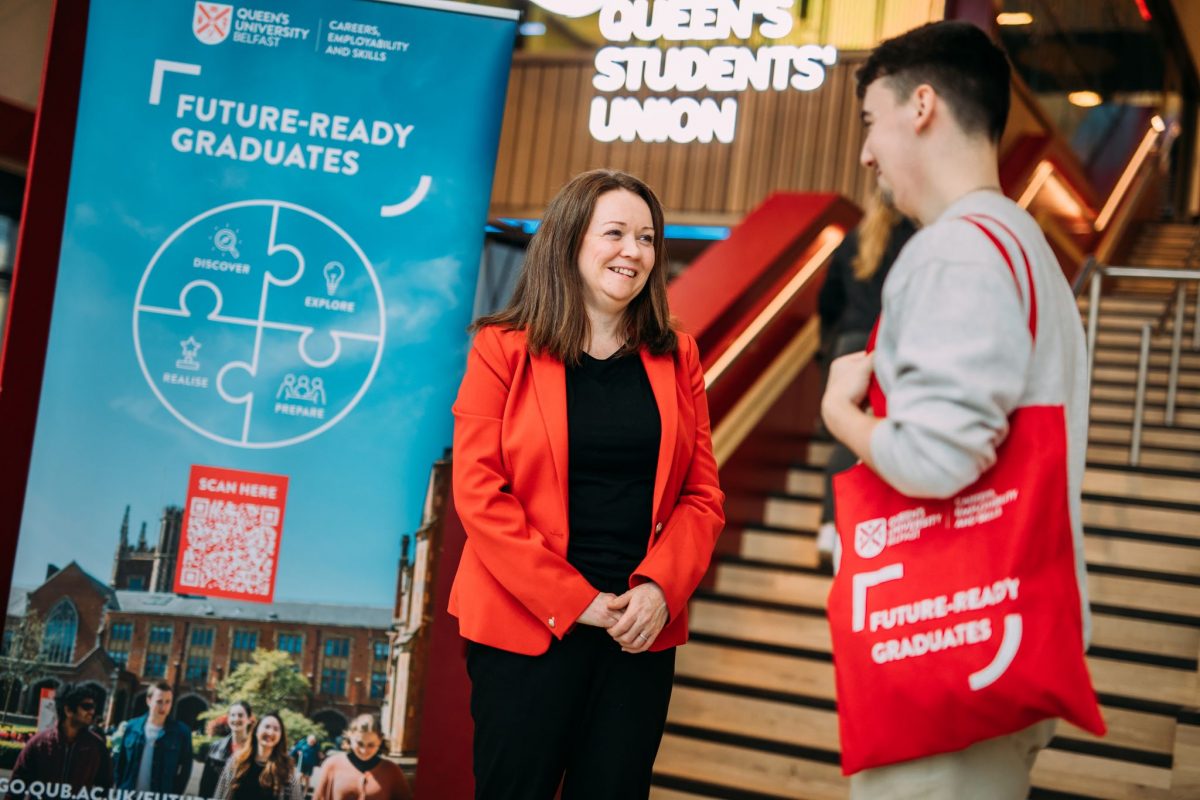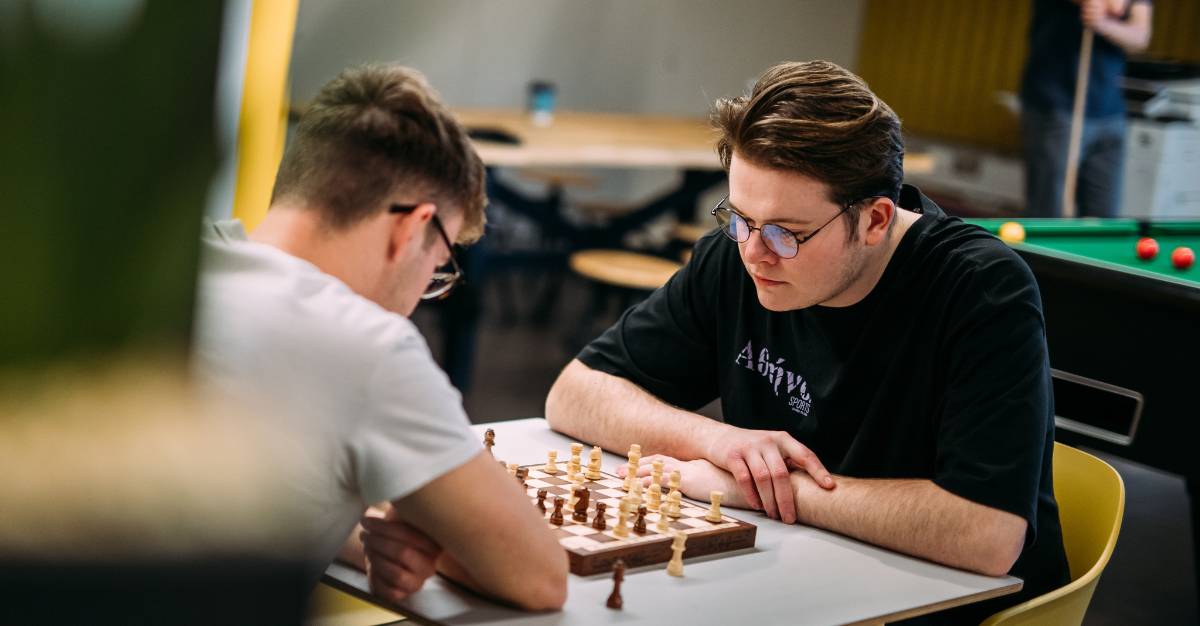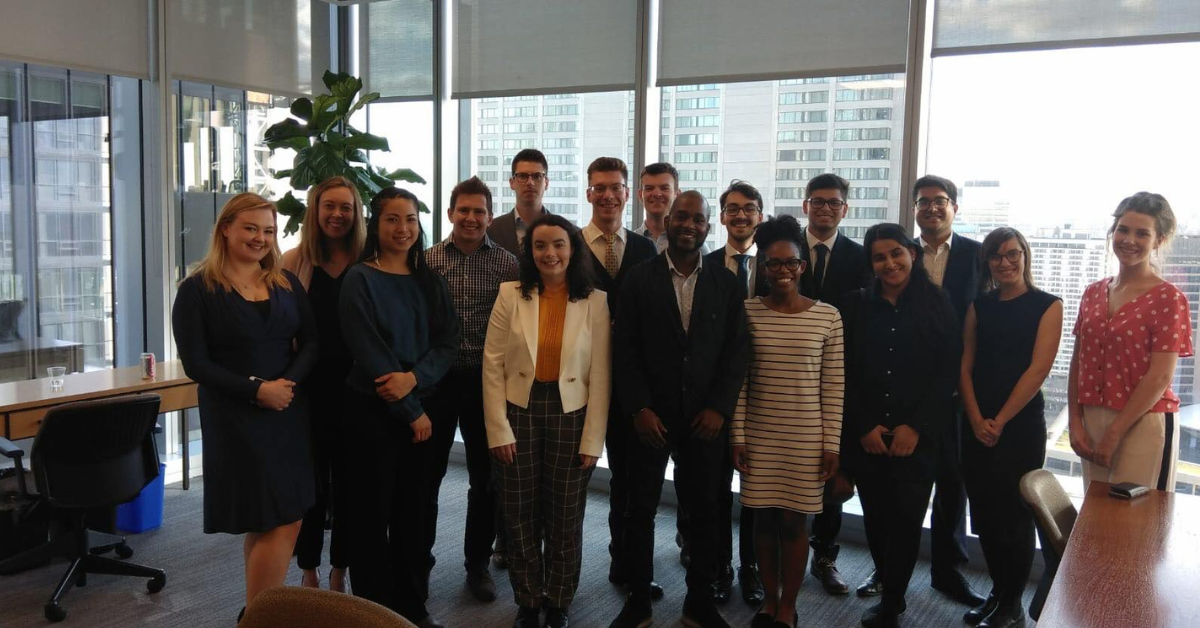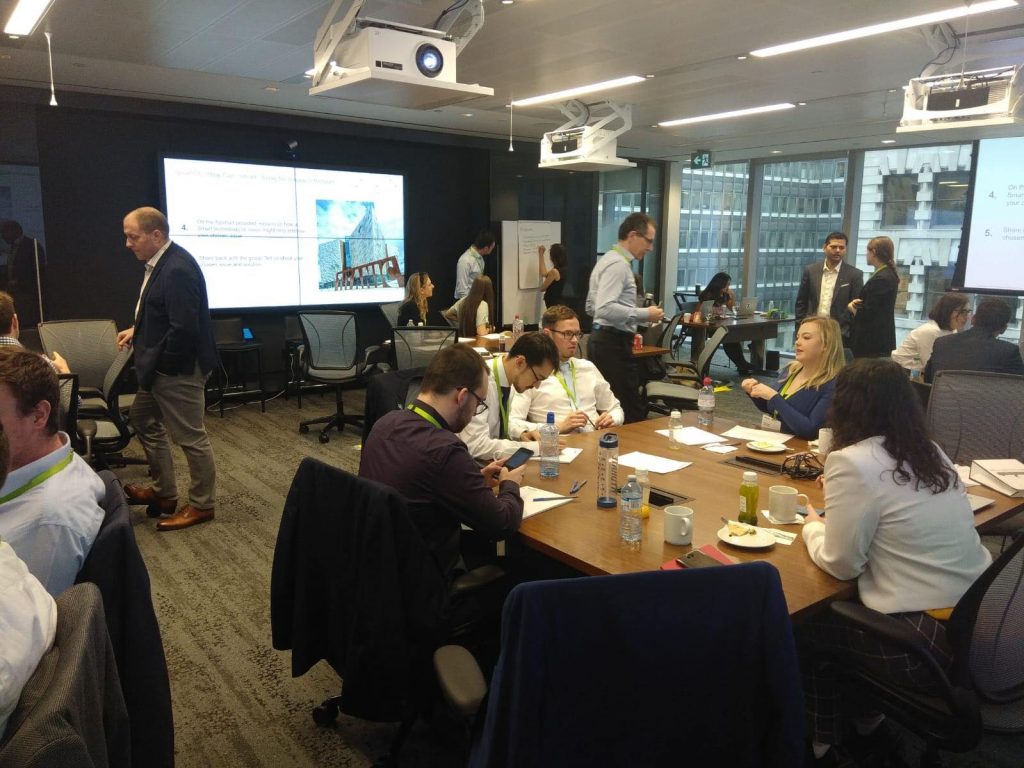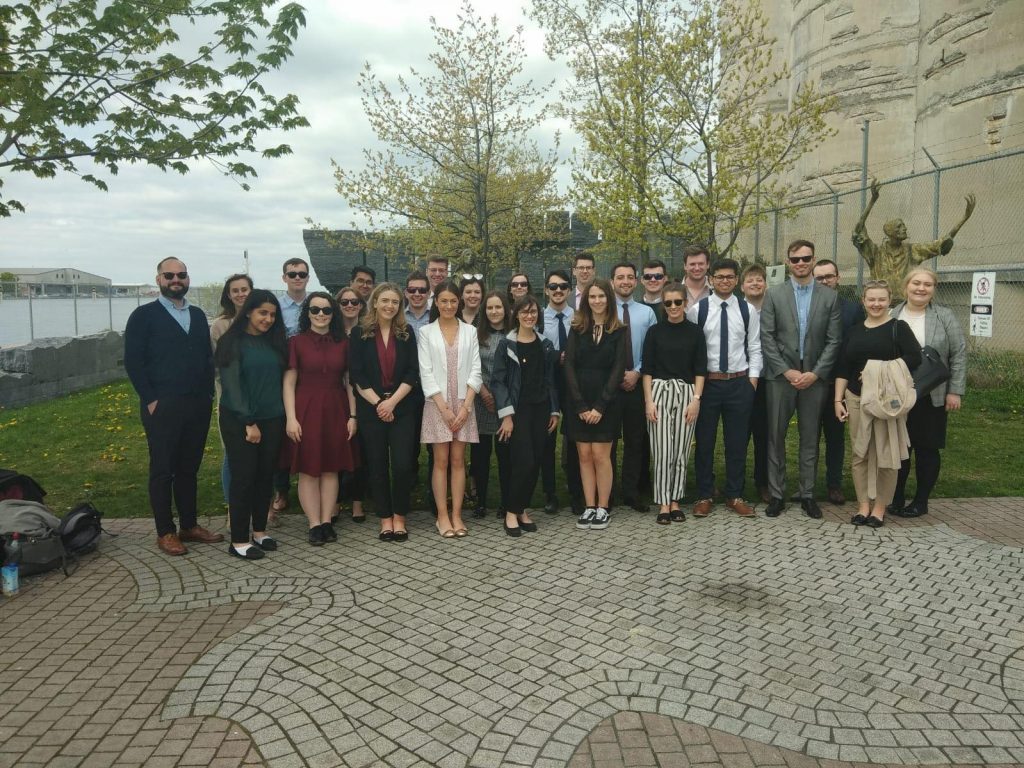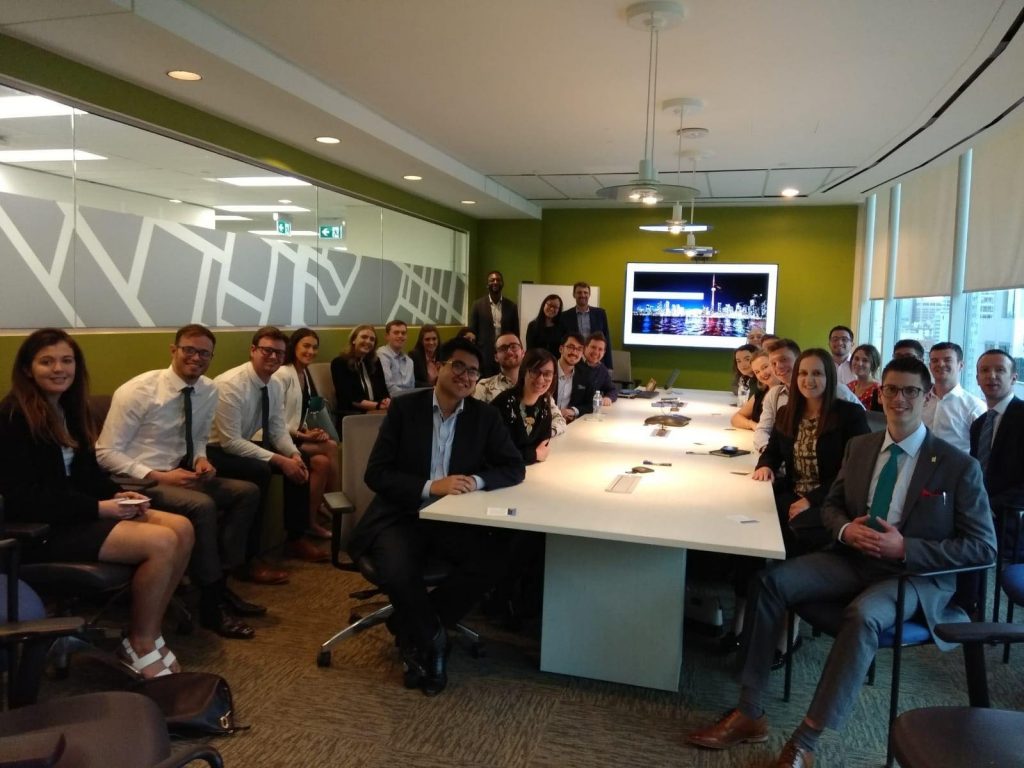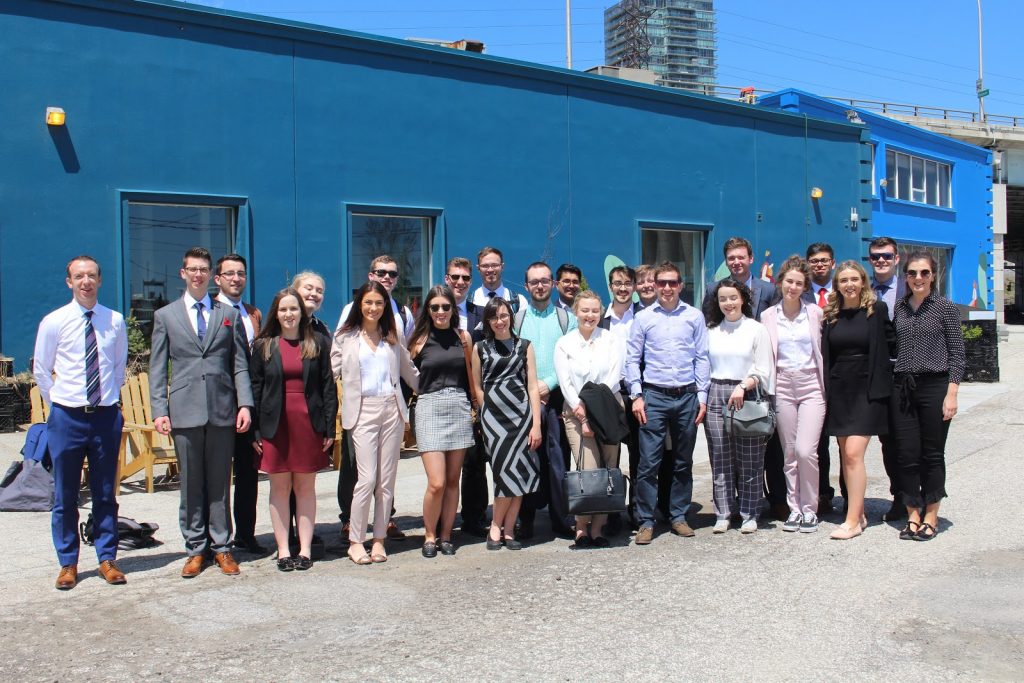
Queen’s BA English-Politics student Alan Montgomery on his experience of the Future-Ready Skills for Leaders: Boston programme.
Discovering the culture
A key part of our trip to Boston was the cultural activity challenge. This meant that, in our teams, we had to complete one activity that reflected the unique character of the city. The idea was that, in addition to the professional development provided by our visits to local employers and universities, we would also expand our global perspective by partaking in the unique culture of our destination. For the challenge, my group toured the Museum of Fine Art. When we arranged this, I don’t think they realised just how much of an art buff I was, but that certainly became clear to them when I spent close to three whole hours in two rooms of the European section. While torturous for some, I loved this.

I studied art for two years in high school, focusing on European painters, and so several galleries worth of European masters was a dream come true for me. They also had genuine remembrance. I studied this guy extensively in high school, and so seeing his work in person really was a great experience. The first thing I noticed about Boston was that it’s big. I say this as someone who lived in the Northern Irish countryside, and for whom Belfast is a major metropolitan centre, but Boston was huge. Not just the city either. The buildings were higher, the cars were larger, and the roads were wider. The city’s architecture was also something special. It’s a historic place that has hosted some of the most important events for America’s development, but it’s also a modern hub for business and innovation.
This means that there are old brick-built buildings side by side with modern corporate headquarters. For example, the old state building where the British governed Boston when America was still a colony, and where the Declaration of Independence was first read, is right next to a high-rise with full glass walls. This style lends the city a really unique character, with historical sites directly alongside treading modern architecture that makes walking around and sightseeing an experience like no other. My favourite place was without a doubt Faneuil Hall. Constructed in 1742, the hall was originally envisioned as a central marketplace for the city. The bottom floor still acts as a market, and is one of the best places to buy souvenirs and gifts, such as my copy of the Constitution here. Interestingly, this place was Quincy Market’s predecessor. In 1824, the hall was used so much that the Town Council decided to expand it by building Quincy Market alongside the North Market and South Market.
Perhaps more significantly, the second floor of the hall housed a debate chamber where some of the most important discussions in history have been held. The debates immediately preceding the Boston Tea Party occurred here, and Samuel Adams, the leader of the Sons of Liberty, and James Otis, the creator of the pivotal taxation without representation argument, were both regular speakers. Many abolitionist debates were also conducted here, alongside discussions concerning women’s suffrage and gay rights. Due to all of this, the hall has become known as the Cradle of Liberty.
Tackling a global challenge
Most of our teamwork occurred during discussions about our project theme, how can Queen’s equip graduates to handle 21st century problems. Our earliest visit was to Invest NI’s headquarters with a session organised by Stratadyce, a company specialising in assisting clients strategic decision making. This involved rolling dice corresponding to problems and solutions before applying the results to our challenge. All in all, this was a great opportunity to grow as a team by approaching the question from a different angle and debating options that wouldn’t have occurred to us otherwise. We met with Invest NI again at the end of the programme where we applied everything we had learned during our visits to our original solution. These conversations were great, we had all talked to different people at networking events, experienced different aspects of Boston’s culture and derived different takeaways from our hosts.

In total, these conversations really helped refocus our attention on the problem while giving us a new lens to examine potential solutions and I cannot wait to see what we come up with for our final pitching session. I met all sorts throughout the programme. Within our core group, I actually found it relatively easy to get along with others. We were all ecstatic to be in Boston and eager to do as much as we could before heading home and so organising group activities was actually pretty straightforward. During our visits, I talked with all sorts of different people, including professors, lawyers, students, CEOs and many more. Some special highlights include the wonderful folks at the University of Massachusetts. Every student and staff member was so welcoming and more than willing to offer insight into the experience of studying in America. The group assembled by the Boston Irish Business Association for our second networking event was also great. Pretty much everyone had some kernel of wisdom to offer, whether it be careers guidance, recommendations for future study or advice on living in America. I also got talking to some fabulous students at the Harvard Business School and I think it’s safe to say that I’ve now made some friends across the water.
Making new friends
This may sound somewhat cliche, but one of the best bonding experiences I had was when me and a group of friends decided to go to church together. We were all interested in how services in the US differed from our own and so we decided to head down to Park Street Church on Sunday morning to take a look. First up, the church itself is beautiful. It’s just next to the Boston Common, one of the biggest green spaces in the country and due to this scenic locale, many selfies were taken before we even got inside. Once we were in though, the service was as enjoyable as you would expect from one of Boston’s most famous churches. After the bustle of the flight the day before, it was nice to just relax and take things slower for a bit while also gaining special insight into American culture. Following this experience, the group I was with became good friends and we ended up spending a lot of time together as the trip went on.

I think the biggest lesson I’ve learned is how to run group discussions. In my team, I was not the ideator. I was with people who could come up with way more imaginative stuff than I could. Instead, I focused on facilitating group discussions. I tried to make sure we always ended meetings with agreed next steps. This also meant I was usually the one urging caution when a concept deviated a little bit much from our design criteria. Initially, I’ll admit, I was too adversarial with how I did this. I was trying to explain why someone’s suggestion wasn’t suitable, and while most of my points were valid, a lot of the time, this just created tenser debates and we didn’t actually end up with much. Instead, I found asking questions worked better. For example, rather than saying, this doesn’t meet our design criteria, I would ask them to explain how it fitted our brief. This was a better approach. It helped avoid arguments and have people either realize they had to rethink their proposal or it gave them a chance to expound on things in a little bit more detail. The main lesson I’ll take back to Queen’s is to accommodate varying learning styles.
Throughout the trip, we met all kinds of different people doing different jobs who had got where they are now by different means. Accordingly, one of my biggest takeaways is that everybody has their own preferences for how they do things and that recognizing and making room for those preferences is vital for letting them contribute meaningfully. This was true of both people I met and the students I was working with. Trying to force people to think and act in certain ways, even if it seems like the most efficient approach to a problem, rarely has the desired results. Instead, it works better to acknowledge and try to make space for their preferences while making sure all discussions and actions assist in achieving our desired outcome. All in all, the trip was definitely a worthwhile learning experience and I look forward to further international travel with Queen’s.
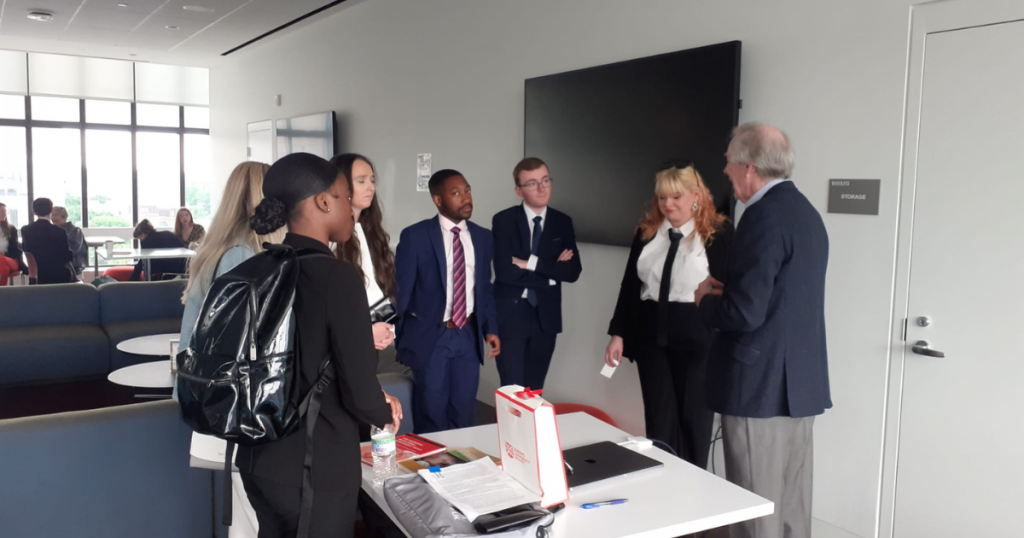
Learning to network
Throughout the trip, we attended two major networking events. One was held by the University of Massachusetts, while the latter was hosted by the Boston Irish Business Association in the offices of the Health Beacon Company. Both events were highly informative and offered us many opportunities to engage with professionals from various industries. However, this experience was also challenging. I had never networked before, and although I consider myself a fairly sociable person, there is something uniquely intimidating about being in a room full of people where everyone is older and more qualified than you. Safe to say, this aspect of the trip was well outside my comfort zone. Surprisingly, the second event was actually harder than the first one. While the first event was on a university campus featuring mostly staff and students, the second event was a business gathering in a company office. This meant a smaller space, more people, and more diverse careers. While insightful, I am glad to get these first awkward initiations into the professional world out of the way.
When it comes to overcoming nerves, I have one piece of advice. If something unsettles you, go directly towards it. Especially when it comes to networking, you need to put yourself out there and make an impression on whoever you’re talking to. For me, I found it helpful to set myself little goals throughout the event. For example, I always tried to only talk with people I didn’t already know, to make sureI engaged with as many professionals as possible. While challenging, this strategy ultimately allowed me to make connections with a wide variety of different individuals, far more than if I hadn’t forced myself out of my comfort zone. In conversations involving a larger group, contributing can also be intimidating. Again, the only solution is to force yourself. I found it worked well to commit to asking at least one question in every discussion to make sure I put myself out there and hopefully steer the conversation in my direction. This was difficult, but it ultimately made networking a far more enriching experience. For me, the most challenging part of networking was the experience gap. What I mean is that when you’re a student trying to form relationships with professionals, you’re almost exclusively dealing with people who have more experience, are more qualified, and are more confident in that kind of selling. I noticed this more in the second networking event, where we were talking to members of the Boston Irish Business Association, than in the first, where we were mostly engaging with staff at the University of Massachusetts. I am a student, after all.

I feel I know how to hold a conversation with university types, and so I find entering these discussions a little less intimidating. In the second event, however, we were with a far more diverse range of professionals. I was talking to politicians, lawyers, business people, all sorts. Honestly, I felt pretty out of my depth. Everyone I was talking to seemed more knowledgeable and more experienced than me. I know it’s cliché, but I was definitely feeling a touch of imposter syndrome. I learned a lot from the people I talked to. For example, Queen’s professor Chris Scott gave us some wonderful advice about capitalizing on opportunities to gain international experience. I intend to follow this guidance and apply for as many global programs as possible next year, and I hope anyone watching also tries their best to partake in the opportunities for personal and professional growth afforded by Queen’s.
Career insights
In terms of my own learning, I think my most informative conversation was with a senior member of Massachusetts Civil Service. I study politics, and so a public sector career has always been of interest to me. However, this guy claimed working in government wasn’t a satisfying experience for him. Apparently, the state bureaucracy was resistant to making any changes, limiting what he could do. Instead, he recommended I go into the private sector as a lobbyist, as these people have far more freedom to drive important decisions. So I’ve definitely been given a lot to think about regarding where I go after Queen’s.
As for who inspired me, I want to say something a little unconventional here. I feel a lot of participants are going to identify teachers or business people who were able to give them valuable career insights. I understand this is an important part of networking, but for my biggest inspiration, I’m actually going to say Adam Esposito, a student at the Harvard Business School. It was great talking to this guy. He was a lot closer to my own age group than many others attending the networking events, and it was fascinating to share details about our university experience. We met at the HealthBeacon networking event, and after we were guided through the company’s process, he was able to recommend to them potential routes to expand. There was just something about seeing someone who wasn’t much older than me being so knowledgeable and confident in their field that they were comfortable giving advice to our host on how to develop their
business that has really motivated me to push further in my own studies. For me, the most impactful workplace we visited was HealthBeacon’s headquarters. Everything about it reflected their identity as an innovative startup.
The room dividers were made from reused shipping pallets, their workspace was purposed to be environmentally friendly, and their full design process from initial conception to final product was on display throughout the room. This was great to see. It was fascinating to learn how the company transformed their idea into competitive biotechnology and the inventive solutions they had devised to navigate problems along the way. For example, a key part of HealthBeacon’s mission was sustainability. Accordingly, they designed a process where used components of the product can be removed, sanitized, and replaced, and any irreparable elements can be ground down safely and utilized in construction projects. Myself and the others who received details about this procedure were impressed at the company’s engineering and left with a strong impression of what an imaginative startup can accomplish.

Getting to know Boston
It’s basic, I know, but the thing I enjoyed most about the trip was experiencing Boston. It’s such a unique and vibrant place. As a harbour city, there is a delicious array of seafood on offer pretty much wherever you go, but especially in the big shopping areas, like Quincy Market.
The people are also so friendly, especially when they find out you’re from the island of Ireland. Almost everyone I met was eager to hear about life in Ireland and enthusiastic to share stories about their Irish family connection or their last visit. The city itself was also beautiful and brimming with history. On our first full day, I took a guided tour of the Freedom Trail, one of the city’s main attractions, and even walking around Boston and admiring the many historic landmarks scattered throughout the streets was an unforgettable experience. I’m not joking when I say every building has its own story. All in all, a fantastic visit and an excursion I would repeat in a heartbeat.
Find out more about the Future-Ready Skills for Leaders International Programme here.



